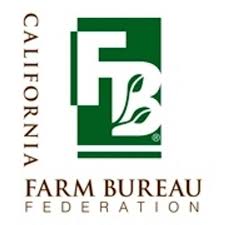July 4, 2018 - By Justin Fredrickson - In applying its judgment and exercising its discretion to determine final scores for projects to receive funding from the 2014 Proposition 1 water bond, it is important for the California Water Commission to bear in  mind the original stated intent and direction of the measure. The clear will of both the people of California and the state Legislature should guide and inform the commission's decisions.
mind the original stated intent and direction of the measure. The clear will of both the people of California and the state Legislature should guide and inform the commission's decisions.
The ballot summary for Proposition 1 referred to "$7.545 billion in general obligation bonds for state water supply infrastructure projects, including surface and groundwater storage, ecosystem and watershed protection and restoration, and drinking water protection," with an argument in favor alluding to "a reliable supply of water for farms, businesses and communities, especially during droughts."
In speaking of the "public benefits" of storage projects to be funded by the bond, numerous provisions in Proposition 1 allude to ecosystem or water quality benefits in the Sacramento-San Joaquin Delta, with the express condition that no project "[shall be] funded … unless it provides measurable improvements to the delta ecosystem or to the tributaries to the delta."
One point that emerges is the clear notion that large surface water projects connected to the delta and its tributaries—and to California's state water system—primarily, the State Water Project and Central Valley Project—were a central theme in the minds of California voters, legislators and policy makers in November 2014.
Given this history, it is understandable that many stakeholders have been surprised, or even dismayed, at some of the unanticipated twists and turns in the commission's multi-year process since then. (See story.)
For most, it seems it was originally taken for granted that one or more large reservoirs directly linked to California's core water system and in the delta watershed would be substantially funded out of the $2.7 billion designated in Proposition 1 for water storage. Instead, we now see a majority of the available funding going to relatively small, regional projects, with the two major reservoirs linked to the delta and the state water system—Sites and Temperance Flat—only partially funded in one case, and greatly underfunded in the other.
Farm Bureau generally supports additional water storage anywhere in the state. But unless one or both of the large projects are funded out of Proposition 1, the state may see modest benefits at the local and regional levels without full realization of the maximum benefit at the system-wide level anticipated by voters and legislators. There is a real risk that cross-cutting public benefits in the delta and its watershed cannot be provided except through large, directly connected surface water reservoirs such as Sites and Temperance Flat.
Only such uniquely situated facilities can:
- Provide broad water supply benefits for both urban and agricultural water purveyors throughout the state;
- Meaningfully address the current lack of water supply reliability within the SWP and CVP systems;
- Reliably capture large volumes of surplus water in wet times to get us through the dry;
- Significantly mitigate some of the anticipated effects of a variable climate;
- Meaningfully address current constraints relating to threatened and endangered species, functional aquatic habitats, water quality in the delta and in the San Joaquin and Sacramento river watersheds;
- Provide major flood, emergency response and recreation benefits not provided by smaller, regional projects.
Unfortunately, although the unique benefits of large, system-linked surface water storage are indeed many, the reality is that the commission's process affords little opportunity to revisit and fully realize these benefits now. Instead, the commission faces a critical set of decisions on how best to salvage at least some of those benefits.
Of particular importance at this juncture, the commission must maximize the limited discretion entrusted to it. Although many of its past votes have been constrained by staff analyses and by the commission's rules themselves, in the final scoring and ranking of projects, the commission itself is now more fully in the role of decider. Here, if nowhere else, process-bound technical evaluation must take a backseat to the commission's own policy judgment and discussion.
It is critically important that a majority of the commission exercise its discretion to accomplish a result that is true not only to the small, regional projects and urban centers, but to the broader promise and declared intent of Proposition 1 in relation to the state as a whole. The best outcome now is one that affords the larger community of water purveyors and water users an opportunity to invest, not only in small, regional projects, but also in major, delta-linked surface water storage capable of directly meeting the delta-centered, system-wide benefits specifically called out in Proposition 1.
Although Farm Bureau has been frankly disappointed at the lack of cohesion around a full overhaul of our broken statewide water system, we also appreciate the difficult nature of the commission's task. On behalf of our members, and of the people of California, we urge the commission to bring its full, collective wisdom and creativity to bear in positioning the Water Storage Investment Program as auspiciously as possible for ultimate success.
(Justin Fredrickson is an environmental policy analyst for the California Farm Bureau Federation.)
Reprinted with permission: California Farm Bureau Federation








